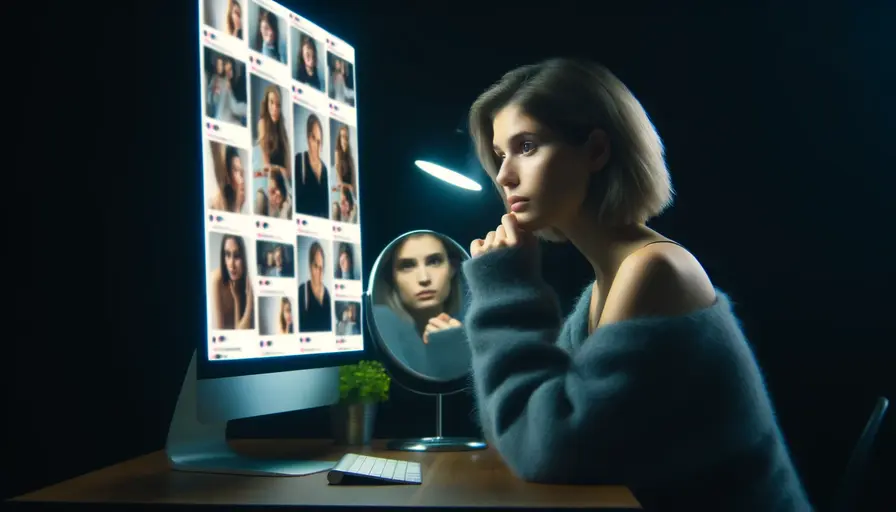The Social Media Trap: Navigating Body Image in the Digital Age

The Social Media Trap: Navigating Body Image in the Digital Age
Written by Dr Hannah Farnsworth
If you follow celebrities or influencers on social media, you may be used to seeing luxurious hair, sculpted bikini bodies and flawless make-up plastered all over your feed. But in reality, these images are an exercise in smoke and mirrors.
In the age of cleverly edited photos and deceptive camera angles, it’s all too easy to fall into the social media trap of comparing yourself to ultra-perfected images masquerading as authentic pictures. No wonder research has shown that social media use can negatively impact self-esteem and body image.
Let’s look at what we can do to recognise that photos have been preened, posed and filtered so that we can start to navigate our feelings around body image in a positive way.
1 Wake Up From the Filter Illusion
The truth is, those ‘ideal’ bodies you see online are often artificially constructed through effortless editing tools. From airbrushed skin and slimmed-down curves to dramatically altered proportions, the editing game is so on point that it has become difficult to distinguish between edited and real pictures.
The painstakingly-curated posts you might envy or obsess over are carefully calculated illusions. They’ve been tailored for mass consumption and designed to misrepresent the truth to get more likes, views and follows. The sooner you start to see these pictures as distortions of the truth, the sooner you can start to disentangle your self-worth from these harmful comparisons.
2 Question Everything
If you want to set yourself free from the weight of unrealistic physical ideals, it’s time to get into the habit of questioning every image, body and life you see splashed across your feed.
Ask yourself the following questions about the images you see:
- Could the model have had some cosmetic work done?
- Are the angles fooling the perspective?
- Which editing tools were likely to be used here?
- What has purposely been left out of the frame?
Learning to deconstruct these illusions of online perfection is a superpower. The truth is, advertisers and influencers are selling you a fantasy – and that fantasy is designed to tap into your deepest insecurities. Their aim is to make you feel like you won’t be enough until you buy what they’re pushing or look like their edited expectations.
3 Bring Real Back
It will take time and effort to detox from making comparisons on social media. You can start to step away from doom-scrolling and compare-and-despair habits in the following ways.
Be ruthless: unfollow accounts that relentlessly promote unrealistic body and beauty standards that they advertise as “goals”. Seeing less of this kind of content means your self-esteem and body image are less likely to be knocked.
Add balance: purposefully follow body-positive accounts featuring realistic, authentic portrayals of diverse bodies, abilities and appearances. Rewrite the definition of what is normal, healthy and beautiful.
Post intentionally: lead by example for healthy social media management. Post unedited photos celebrating your own unique look and lifestyle, rather than illusions of supposed perfection.
Consume critically: before being seduced by the next sponsored body transformation or irresistible product, ask yourself – what’s the real motive behind this message? Chances are, it’s aiming to make you feel inadequate to encourage you to buy a product or adopt a trend.
Set boundaries: shedding comparisons and re-scripting self-talk is hard work. Log off and distance yourself from platforms that become consumption traps. Replace mindless hours of scrolling with taking care of your body and prioritising self-care.
Virtual reality isn’t real. At the end of the day, the hyper-edited life, body, and soul reels you see are carefully manufactured to trigger the feeling of a void that you’ll want to fill through consumption.
Final Thoughts
The ultimate freedom from falling into a social media trap is to cultivate self-acceptance. Start with some self-care, and think about your own personal qualities. Remember, these qualities may not be the same as the ones social media tells us are valuable.
Learn to be critical of everything you see online - the person behind the filter is just another human navigating their own insecurities. Now is the time to define yourself beyond curated pixels, and discover your qualities for yourself.
Posted by Dr Hannah Farnsworth